 CUMBERLAND — Natalie Domin knew she was going to cry.
CUMBERLAND — Natalie Domin knew she was going to cry.
She has every year since she was 10 on the day of the 4-H auction at the Cumberland County Fair.
This year, that was Wednesday, when Natalie, now 13, would lead each of the two lambs she’s raised since the spring, one by one, to the front of the exhibition hall at the fairgrounds. She would place their back hooves as far behind them as they could reach and, holding them by the head, stretch their necks to show off their muscles to the crowd of bidders sizing them up for their meat.
There is always a chance the lambs will go to someone who wants them for wool, but Natalie knows that’s not likely. Most of the time, she thinks practically about it.
“If I hadn’t bought these lambs, I know they’d be kept for the same reason,” she said, though they’d probably have ended up at a bigger farm and received less attention. “They’re getting the chance to play and have fun and be loved.”
Buddy and Freckles were 2 months old when she took them home in May from the Hayward farm in North Yarmouth, where she had picked them out from the newborn Southdown lambs, a breed she prefers because they’re more laid-back.
Freckles she liked because he was little and cute, but Buddy – even though she won’t admit it out loud – became her favorite. He followed her around and liked to cuddle and get his head scratched.
“He’s more like a dog, I guess,” she said. “He’s really sweet.”
Freckles is not as well-behaved, but she loves him just the same. They’re both like friends, only better.
“You can talk to them without them talking back,” she said.
Before Natalie could talk, she knew the sound every animal made and could imitate them on command, her parents said.
Her first word was “duck” and, as a toddler, her favorite place to be was on the back of her toy horse.
An eighth-grader at Freeport Middle School, she sings in the chorus and plays the clarinet, but only mentions those hobbies when pressed about her other interests.
“Animals is her thing,” said her mother, Rachel Domin, who was raised on a dairy farm in Richmond.
Natalie’s family just moved to a new place in Freeport where there’s more room for all their animals – five rabbits, five chickens, three dogs, two horses, a cat and a lizard, along with whatever Natalie and her two younger siblings are raising through 4-H.
LEARNING TO SAY GOODBYE
The first animals Natalie could call her own were rabbits she got when she was 5. They were meant only to be pets, but they had a litter. Her parents let her keep one of the bunnies, but she had to give the rest away – her first experience having to say goodbye.
A couple of years later, she started raising pigs to race at fairs. She switched to lambs when she was 9. She doesn’t remember why she chose them over goats or cows.
“I just like sheep,” she said.
Since then, she’s raised two every year. As herd animals, they need company, she explained.
At first, it’s all about hanging around them, getting them used to people, she said. As they get bigger, she works with them around obstacles, getting them ready to show in late summer and fall.
Natalie’s first fair is in early August. She goes to five altogether, ending with the Cumberland County Fair.
Before each show, she shears the lambs, washes them twice, cleans their ears, fluffs their legs and trims their heads.
It gets harder once school starts, she said. On Tuesday, after working a 4-H booth selling raffle tickets for a freezer-ready pig, Natalie’s mother handed her a three-ring binder and directed her to the stands in the exhibition hall to do her math homework.
Natalie has to take two days off from school for the Cumberland fair, but it’s not about getting out of class. An aspiring veterinarian, this is her education.
It’s also her job. The money she gets from selling the lambs goes into a savings account that, for now, mostly goes back into the animals.
Natalie has always planned to get a ewe and start breeding her own lambs so she no longer has to buy them.
That opportunity came sooner than she thought when, on Tuesday, the owner of the female sheep that placed third in the market lamb show let Natalie know that they hoped to sell the ewe to a breeder, because she had such good genes.
Natalie and her parents debated into the night Tuesday whether the time was right, and she finally decided she would bid.
AUCTION ON DESPITE RAIN
For most of the fair, Wednesday was a washout.
Even after the morning’s downpour had diminished to a drizzle, the midway remain closed and no one sold tickets at the gate.
There was no creaking from the Ferris wheel or smell of hot sausage. All that could be heard amid the animals’ moos and baas was the plunk of raindrops on the tin roof of the exhibition hall and flags on the tarp-covered food stands whipping in the wind.
But the open sheep show went on that morning, and there was no talk of postponing the auction that afternoon.
Natalie had gone back to a friend’s house in Pownal to dry off after spending the morning playing in the rain between showing her sheep. Her first stop when she got back to the fairgrounds was Buddy and Freckles’ pen. She swung over the metal fence, grabbed Buddy’s head and slipped into baby talk.
“What are you doing?” she cooed into the lamb’s face as she scratched between his ears.
After a couple of minutes of coddling, she hopped back onto the fence, stopping to wipe her mouth with the back of her hand before swinging her leg over the top.
“He slobbered on me,” she said.
As quickly as she and her friends had darted into the barn to check on their animals, they were out the door and headed across the fairgrounds to see if there was any apple pie left at the farm museum, where they had smelled it baking that morning.
In rubber boots and raincoats, the four girls pranced through the muddy pathways, splashing in puddles as they chattered and squealed. In the farm museum, a woman was cleaning up the kitchen when they arrived and asked about the apple pie. She had good news; there was one more left.
She sliced it into pieces, and they gobbled it up with plastic forks.
By the time they returned to the sheep barn, the auction was about to start.
After grabbing two harnesses from the tack room, Natalie hopped back into her lambs’ pen, wriggled the rope around their muzzles and pulled them by the leash into the exhibition hall.
The lambs are the last to be auctioned off, after beef cattle and market hogs. After changing into her show clothes – a white polo shirt tucked into khakis – she watched the auction from the fence in front of the stands with her hands clasped and held to her chin. She paced between her family and friends and Buddy’s pen, where she’d lean in and stroke his back. Silent among the chatter of the auctioneer and the constant baas from the lambs, she puffed out breaths.
“It’s nerve-wracking,” she said about whether she’d sell her lambs, where they’d go and how she’d handle it all.
Plus, this would be her first time bidding in an auction.
Because the ewe she would bid on placed higher in the market lamb competition than Buddy and Freckles, it would be auctioned off before them. That’s what she had to worry about first.
BIDDING FOR HER OWN EWE
Natalie had decided she would bid up to $4.25 per pound before bowing out to other bidders.
As the beef and pigs were sold, the crowd thinned and by the time the sheep were up, most of the seats were empty.
Natalie and her parents stood behind the rows of chairs to make sure the auctioneer would be able to see her.
It was her money, they told her; she should place the bids herself.
Her program rolled up in her hand and her chin resting on the top, Natalie watched as the first two lambs were auctioned off.
The grand champion went for $4.45 a pound – more than Natalie could afford for hers, but bidding for the reserve champion stopped at $4.10, a better sign.
Then out came No. 51. She didn’t have a name. The auctioneer introduced the owner and 112-pound ewe and started the bidding.
“Six, five, four, three, two, two and a quarter, two dollars a pound, two and a quarter,” he rattled off.
When Natalie didn’t move, her mother lifted her daughter’s arm by the elbow, raising her rolled-up program into the air.
A middle-aged man in a red hat, sitting slouched in the front row, countered. The bidding war began.
“Half to $2.50, $2.60, $2.60 now 70, now 80.”
With Natalie now raising her program on her own, the price rose rapidly, until it hit $4 and the bidding stalled.
“$4.10, $4.10,” the auctioneer repeated, then turned to the man in the front.
“Yes? Is that a yes?” he said. The war wasn’t over.
Natalie bid back for $4.20, the last offer she told herself she’d make.
“Now 20, now 30,” the auctioneer said. If the other bidder countered, she was done.
“$4.30, $4.30 …. last call, $4.30,” the auctioneer said, then pointed to Natalie. “It’s yours – 4 dollars and 20 cents a pound.
Natalie collapsed into her mother’s chest as her family and friends wrapped their arms around her.
When she lifted her head out from under the hugs, her eyes were wet and her face was red, but for now, she was smiling.
Send questions/comments to the editors.


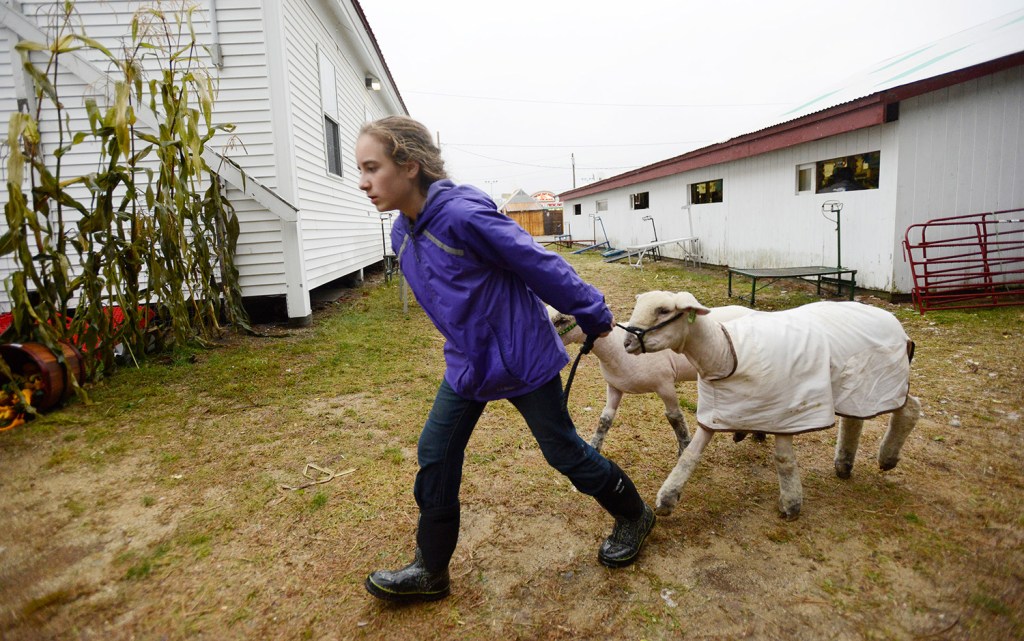
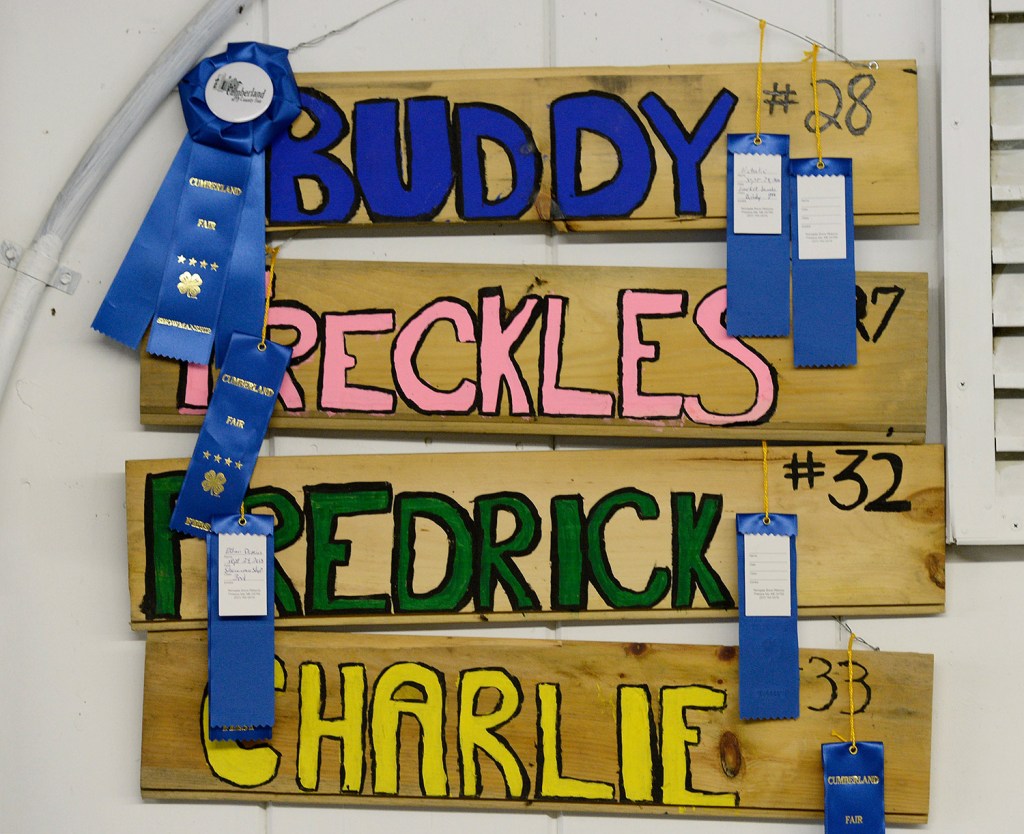

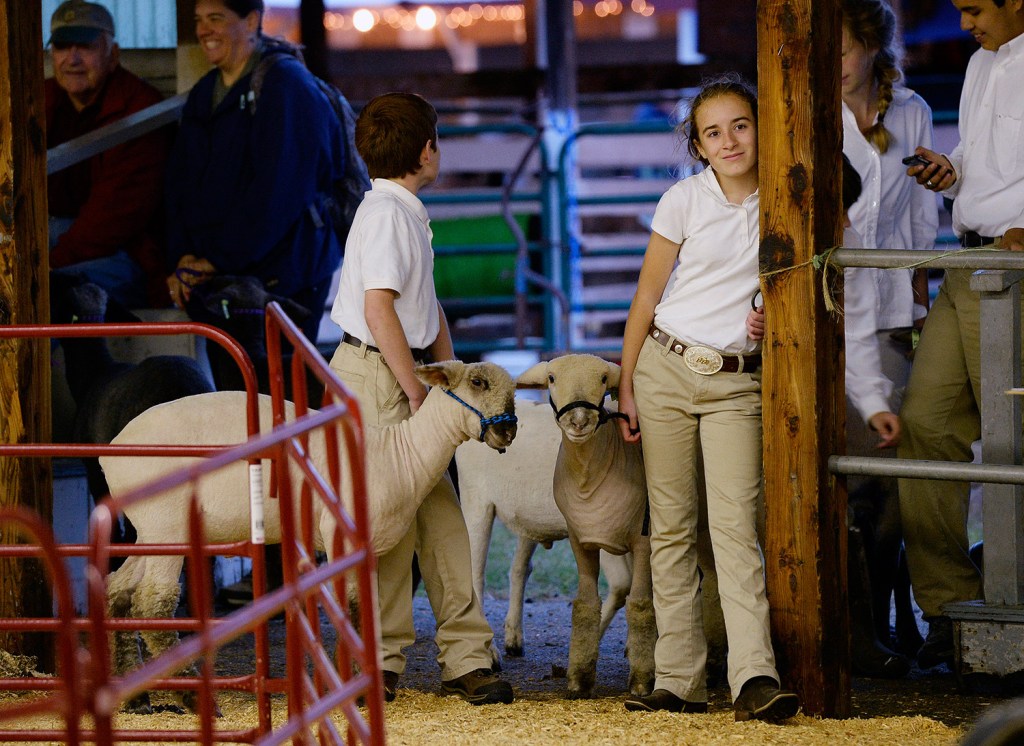
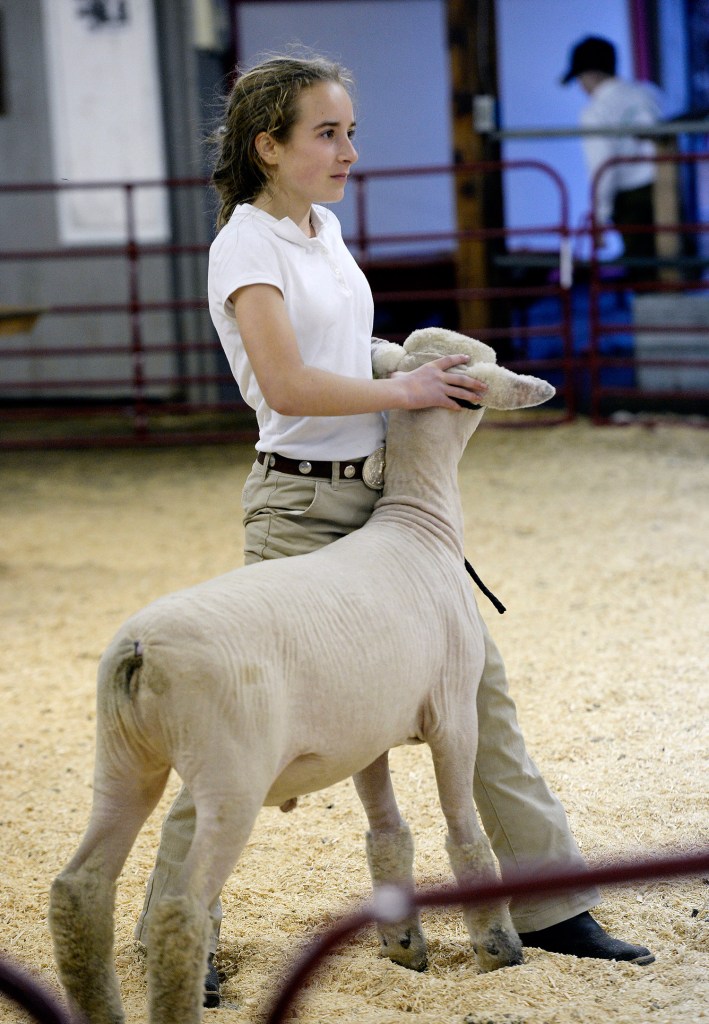
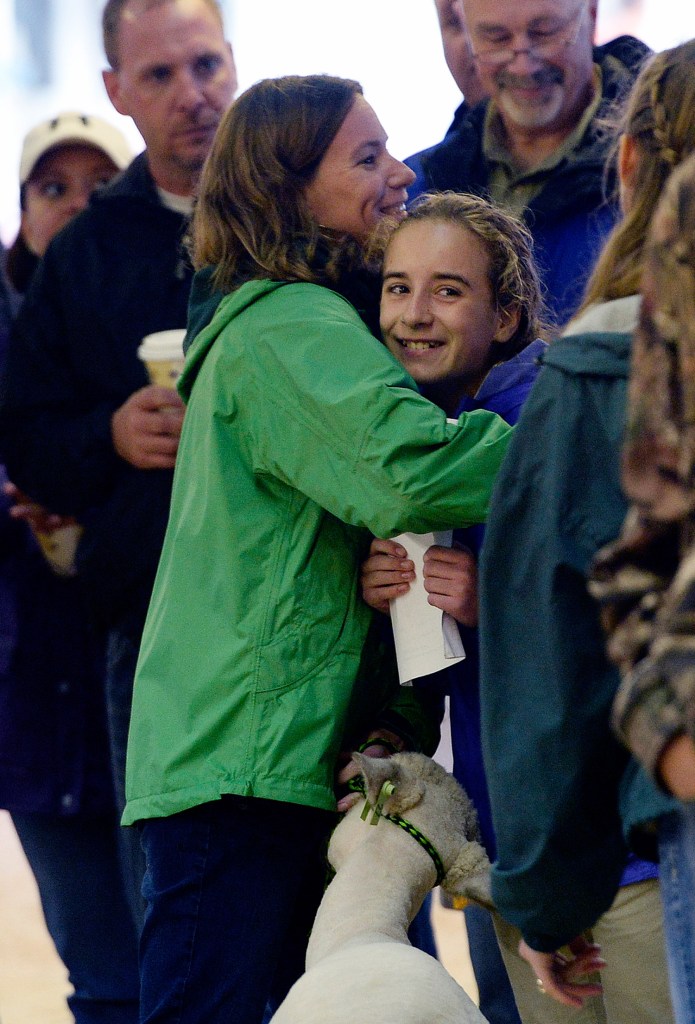
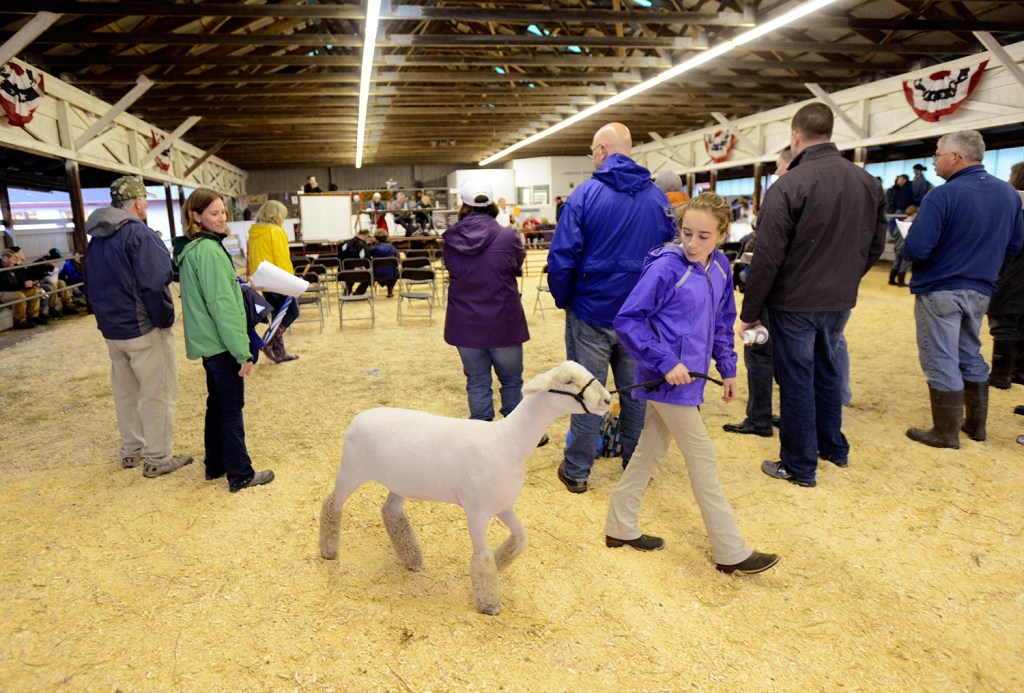

Comments are no longer available on this story